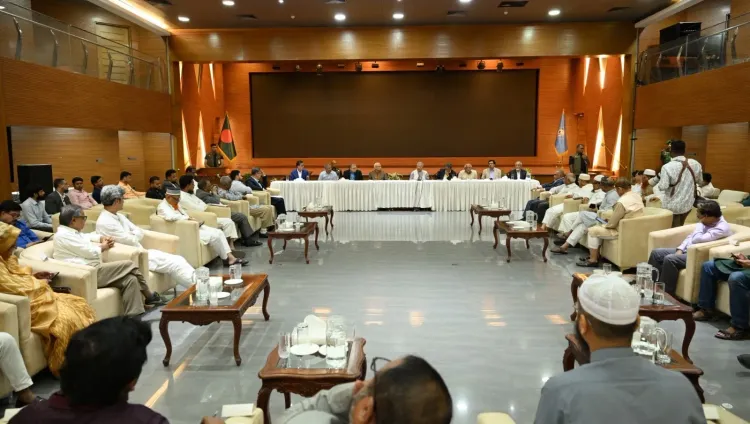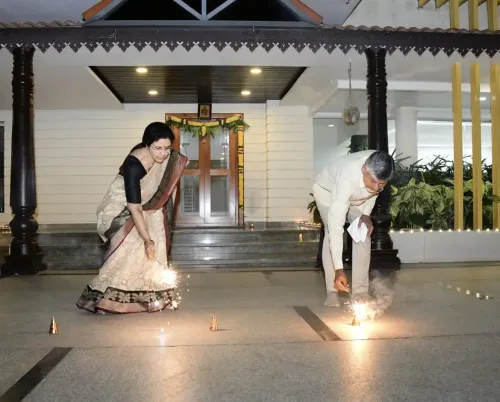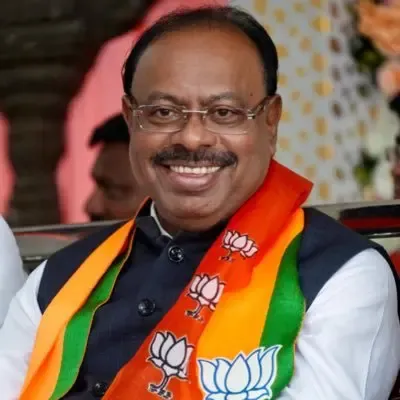Why Did Bangladesh's National Consensus Commission Withdraw the NCC Proposal?

Synopsis
Key Takeaways
- The National Consensus Commission has withdrawn its NCC proposal.
- A new committee for constitutional appointments has been proposed.
- Political parties are urged to cooperate for national stability.
- The structure of the new committee will not include the President or Chief Justice.
- This decision reflects ongoing political negotiations in Bangladesh.
Dhaka, June 25 (NationPress) The National Consensus Commission of Bangladesh has officially retracted its plan to establish a National Constitutional Council (NCC), instead proposing the creation of a 'Constitutional and Statutory Institution Appointments Committee', as reported by local media.
This announcement was made by Vice-Chairman Ali Riaz following discussions with political parties at the Foreign Service Academy in Dhaka.
Riaz emphasized that the decision to abandon the NCC proposal was made in response to the preferences of various political entities.
Sources indicate that the new committee's structure will not involve the President or Chief Justice.
The suggested committee will comprise seven members, with the Speaker of the Lower House serving as its Chairman.
Members will include the Prime Minister, the Speaker of the Lower House, the Speaker of the Upper House, the Leader of the Opposition, a representative from opposition parties other than the main opposition, a legal representative of the President, and a judge from the Appellate Division nominated by the Chief Justice.
The original NCC proposal faced opposition from the Bangladesh Nationalist Party (BNP), which argued that it would diminish the powers of the executive.
“The NCC was intended to wield significant constitutional authority, yet it lacked accountability. As a democratic party, we cannot support an institution that holds power without accountability. Establishing such a separate body will disrupt the balance,” quoted Salahuddin Ahmed, a member of the BNP standing committee, in leading Bengali daily Prothom Alo.
On the other hand, the radical Islamist party Jamaat-e-Islami backed the NCC but suggested excluding the President and Chief Justice from the council. Other parties also proposed alternative names and structures for the NCC.
Riaz further urged political parties to adopt a flexible approach regarding reform matters, stressing that such collaboration would benefit the nation.
“Let us focus on advancing together for the sake of the state and the nation. I have repeatedly stated that compromises must be made,” he remarked.
Last week marked the beginning of the second phase of talks between political parties and the National Consensus Commission amid ongoing political uncertainty in Bangladesh.
The latest discussions sought to finalize recommendations from various reform commissions established by the interim government and draft the July Charter. The talks concentrated on continuing the unfinished recommendations from the first round, as reported by local media.
Earlier this month, Muhammad Yunus led a National Consensus Commission meeting, where political leaders acknowledged the urgent need for timely elections.
The absence of a clear reform roadmap and election schedule has exacerbated political unrest in Bangladesh, with leaders from multiple parties questioning the controversial policies and performance of Yunus’s advisors.
As pressure mounted, Yunus had previously expressed frustration over his position, indicating a desire to resign, which has stirred considerable discussion within political circles.









